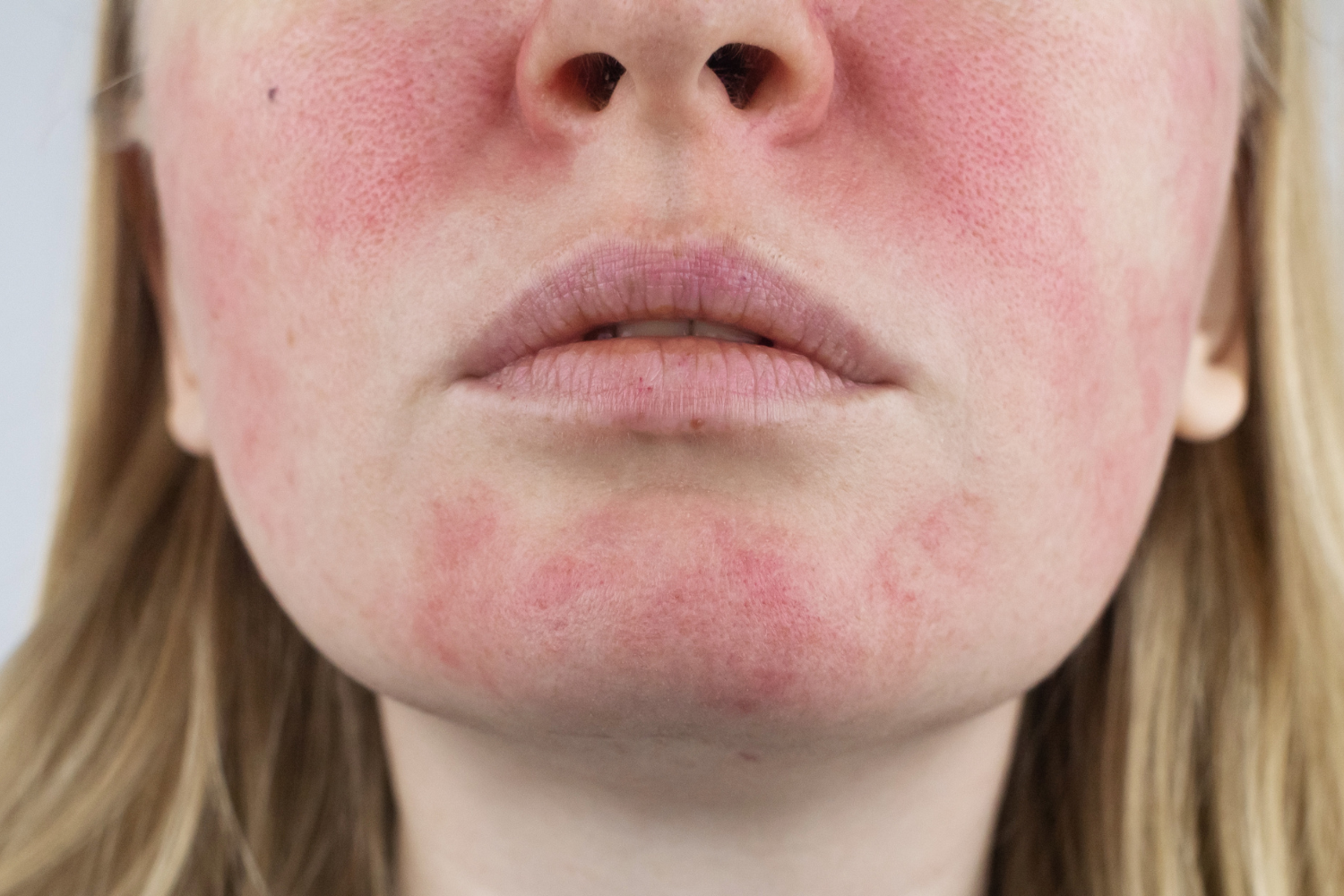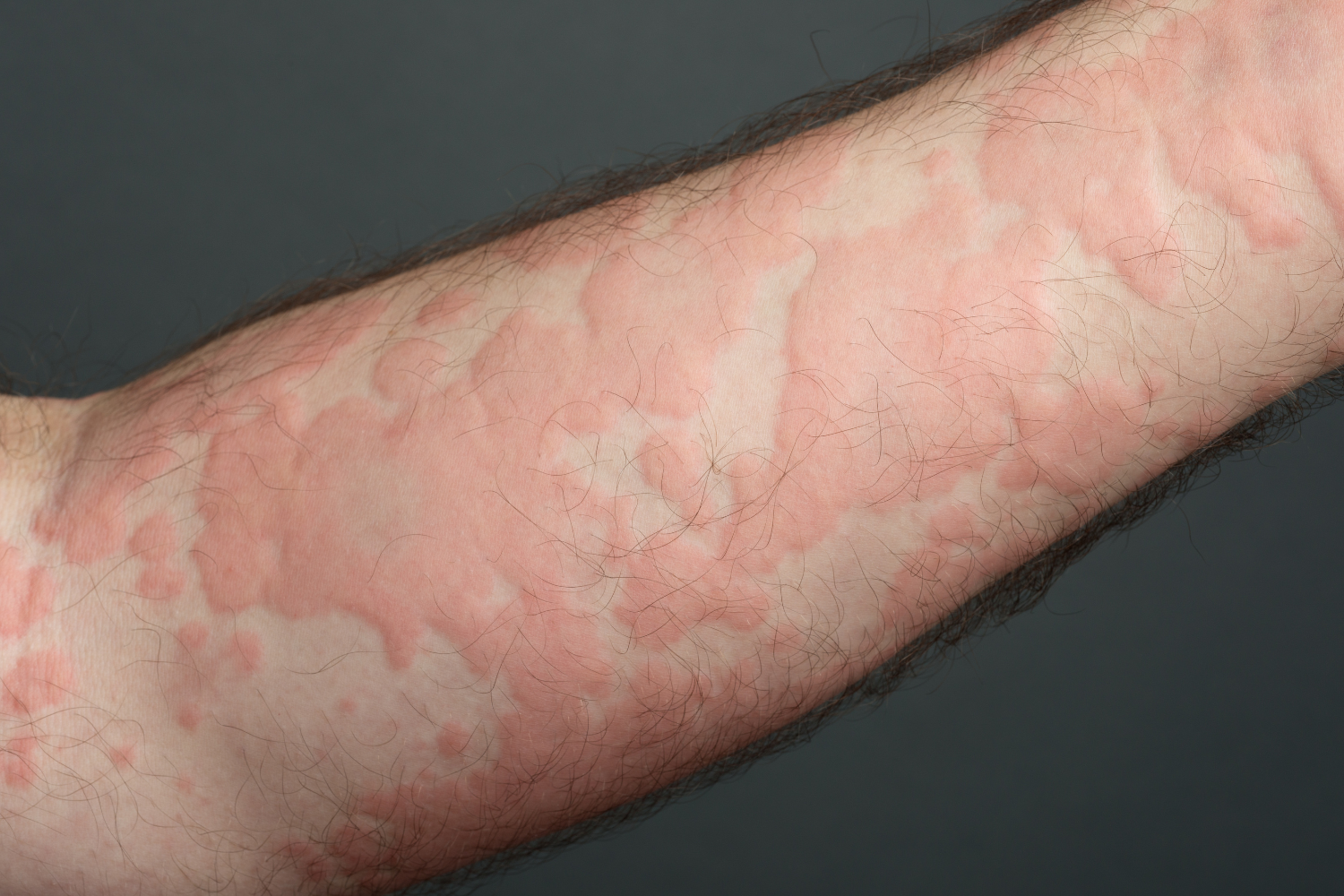Some people experience uncomfortable or even severe reactions after drinking alcohol, and it can be hard to know if the cause is alcohol intolerance or an alcohol allergy. Common alcohol sensitivity symptoms include facial flushing, a stuffy nose, rapid heartbeat, or difficulty breathing, while alcohol allergy symptoms may involve hives, swelling, or other allergy symptoms tied to the immune system.
Alcohol intolerance typically occurs when the body cannot properly break down a chemical called acetaldehyde during alcohol metabolism, while an allergy is an immune system response that can trigger severe allergic reactions.
This article explains the difference between alcohol intolerance symptoms and an allergic reaction, highlights the most common symptoms of alcohol intolerance, and shares general information on alcohol sensitivity and offers lifestyle tips for those who experience these reactions. This information is intended for educational purposes only and should not be used as a substitute for professional medical advice.
What Is Alcohol Sensitivity (Also Called Alcohol Intolerance)?
Alcohol sensitivity, often called alcohol intolerance, happens when the body cannot process alcohol efficiently. Instead of experiencing only the effects of drinking alcohol, a person develops uncomfortable symptoms because the body cannot properly break down a toxic byproduct called acetaldehyde during alcohol metabolism. This is different from normal intoxication, where symptoms come from the direct effects of ethanol.
Alcohol intolerance occurs when enzymes like alcohol dehydrogenase or aldehyde dehydrogenase do not function as they should, leading to unpleasant reactions even after consuming alcohol in small amounts. People of East Asian descent, or those with an inherited genetic mutation, are more likely to experience an alcohol flushing response and other intolerance reactions compared to those who can process alcohol more effectively.

What Are the Symptoms of Alcohol Sensitivity?
Alcohol sensitivity can show up in several ways, and the intensity often depends on how much alcohol is consumed and how well the body can handle it. Here are the most common symptoms of alcohol intolerance.
Flushing and Redness in the Face or Skin
Facial flushing is one of the most common symptoms of alcohol intolerance. This occurs when blood vessels dilate due to a buildup of acetaldehyde, resulting in redness across the face, neck, or chest. The alcohol flushing response is not just cosmetic—it signals that the body is struggling to process alcohol properly.
Headaches, Nausea, or Stomach Discomfort
Unpleasant reactions like headaches, nausea, or stomach discomfort may appear shortly after alcohol consumption. These intolerance symptoms are different from a typical hangover because they happen quickly, sometimes after only a few sips of alcoholic beverages. In many cases, this is linked to the way the body breaks down alcohol into acetic acid and other compounds.
Rapid Heartbeat or Palpitations
A rapid heartbeat, also called palpitations, is another sign of alcohol sensitivity. Some individuals report a rapid heartbeat after alcohol consumption, which may be related to individual differences in alcohol metabolism. For some, this can feel alarming, especially if it occurs after drinking alcoholic drinks in small amounts.
Nasal Congestion or Runny Nose
A stuffy nose or runny nose may follow alcohol consumption, especially with drinks like red wine, wheat beer, or those containing yeast. These intolerance reactions are sometimes confused with allergy symptoms, but they are usually caused by alcohol itself or by certain ingredients in alcoholic beverages that worsen symptoms.
Feeling Tired or Sluggish After Small Amounts
Some people feel unusually tired after consuming small amounts of alcohol, which may reflect individual differences in how their bodies process it. This is not the same as normal drowsiness from heavy alcohol consumption, as it happens faster and is linked to the body’s inability to process alcohol efficiently. People who drink alcohol regularly may notice these symptoms more clearly if their intolerance develops or worsens over time.

What Causes Alcohol Sensitivity or Intolerance?
Alcohol intolerance occurs when the body cannot process alcohol efficiently, often due to differences in how alcohol metabolism works. Instead of breaking ethanol down into harmless acetic acid, a toxic byproduct builds up and causes intolerance symptoms. Several factors may contribute:
-
Enzyme differences: Some people have lower activity of alcohol dehydrogenase or aldehyde dehydrogenase (ALDH2 deficiency), making it harder to properly break down acetaldehyde.
-
Genetic and family history factors: Alcohol intolerance typically runs in families and is more common among those of East Asian descent with an inherited genetic mutation.
-
Common triggers: Ingredients in alcoholic beverages, such as histamines in red wine, sulfites in beer, or additives from wheat, yeast, and certain liquors, can worsen symptoms.

Alcohol Sensitivity vs Alcohol Allergy: What’s the Difference?
Alcohol intolerance and alcohol allergy share overlapping signs, but the causes are very different. Alcohol intolerance occurs when the body cannot properly break alcohol down, while alcohol allergy symptoms are triggered by the immune system. Knowing the difference matters because an allergic reaction can be dangerous and may require medical attention.
|
Feature |
Alcohol Sensitivity / Intolerance |
Alcohol Allergy |
|
Cause |
Body struggles to process alcohol efficiently; buildup of acetaldehyde |
Immune system overreacts to alcohol or ingredients in drinks |
|
Common Symptoms |
Facial flushing, headaches, nasal congestion, fatigue |
Hives, swelling, difficulty breathing, severe allergic reactions |
|
Risk Factors |
Genetic mutation, enzyme deficiency, certain medications, metabolic disorder |
Immune system response, allergy to wheat, yeast, or other drink ingredients |
|
Severity |
Usually uncomfortable but not life-threatening |
Can cause severe reaction and may be life-threatening |
|
Management |
Reduce symptoms by limiting or avoiding alcohol consumption |
Requires allergy tests, medical diagnosis, and strict avoidance of triggers |

Can Alcohol Sensitivity Develop Suddenly?
Yes, developing alcohol intolerance can happen even in adults who used to drink alcohol regularly without issues. New sensitivity reactions in adults may reflect changes in how the body processes alcohol, which could be influenced by various health or lifestyle factors. Consult a healthcare professional for evaluation.
Factors such as medications or changes in overall health may influence how the body reacts to alcohol over time. If new intolerance reactions arise, a healthcare professional may recommend an elimination diet, allergy tests, or an ethanol patch test to rule out other causes.
How Is Alcohol Sensitivity Checked or Diagnosed?
Alcohol sensitivity is usually identified through a person’s health history and the pattern of intolerance symptoms after consuming alcohol. A healthcare professional may review when symptoms occur, what types of alcoholic beverages cause problems, and how severe the reactions are.
In some cases, allergy tests or an ethanol patch test may be used to rule out alcohol allergy symptoms linked to an immune system response. Seeking medical advice is important if symptoms involve difficulty breathing, low blood pressure, or other severe reaction concerns.
Tips for Managing Alcohol Sensitivity
Managing alcohol sensitivity often means paying attention to choices around alcohol consumption and lifestyle. Simple lifestyle changes may help individuals avoid discomfort associated with alcohol consumption.
-
Choose drinks carefully: Some alcoholic drinks, like red wine, wheat beer, or those with yeast and sulfites, may worsen symptoms more than others.
-
Support liver and energy metabolism: Nutrients involved in alcohol metabolism may help support normal liver function and energy production.
-
Stay hydrated: Drinking water alongside alcohol helps maintain electrolyte balance and may ease intolerance reactions.
-
Practice mindful drinking: Limiting alcohol intake, pacing drinks, and being aware of intolerance symptoms can help reduce adverse reactions in social settings.
Key Takeaways on Alcohol Sensitivity Symptoms
Alcohol sensitivity can cause flushing, headaches, nausea, or other uncomfortable symptoms after even small amounts of alcohol. It is different from an alcohol allergy, which involves an immune system response and can lead to severe allergic reactions. Knowing the difference helps you decide when to seek advice from a healthcare professional.
Making mindful choices with alcoholic beverages, staying balanced, and supporting your body’s ability to process alcohol efficiently can make a big difference. For those seeking additional support for liver health and energy metabolism, Drinkwel supplements, particularly Revil, include nutrients that support healthy liver function and metabolic processes involved in alcohol metabolism.
Frequently Asked Questions
What are the most common symptoms of alcohol intolerance?
Flushing, headaches, nausea, rapid heartbeat, and nasal congestion are the most common symptoms of alcohol intolerance.
Can alcohol sensitivity get worse over time?
Yes, alcohol sensitivity can worsen due to liver disease, metabolic disorder, or lifestyle changes that affect alcohol metabolism.
How do I know if I have an allergy or just sensitivity?
Alcohol intolerance occurs when the body struggles to process alcohol, while an allergy involves an immune system response confirmed through allergy tests.
Does alcohol sensitivity mean I should stop drinking completely?
Not always, but avoiding alcohol or limiting intake is the best way to eliminate symptoms and reduce adverse reactions.
Are there ways to support healthy alcohol metabolism?
Yes, staying hydrated, choosing drinks carefully, and using supplements that support liver function may help reduce symptoms.
References
-
Brooks, P. J., Enoch, M. A., Goldman, D., Li, T. K., & Yokoyama, A. (2009). The alcohol flushing response: an unrecognized risk factor for esophageal cancer from alcohol consumption. PLoS medicine, 6(3), e50. https://doi.org/10.1371/journal.pmed.1000050
-
Chen, C. H., Ferreira, J. C., Gross, E. R., & Mochly-Rosen, D. (2014). Targeting aldehyde dehydrogenase 2: new therapeutic opportunities. Physiological reviews, 94(1), 1–34. https://doi.org/10.1152/physrev.00017.2013
-
Matsuse, H., Shimoda, T., Fukushima, C., Mitsuta, K., Kawano, T., Tomari, S., Saeki, S., Kondoh, Y., Machida, I., Obase, Y., Asai, S., & Kohno, S. (2001). Screening for acetaldehyde dehydrogenase 2 genotype in alcohol-induced asthma by using the ethanol patch test. The Journal of allergy and clinical immunology, 108(5), 715–719. https://doi.org/10.1067/mai.2001.118791
-
Vally, H., de Klerk, N., & Thompson, P. J. (2000). Alcoholic drinks: important triggers for asthma. The Journal of allergy and clinical immunology, 105(3), 462–467. https://doi.org/10.1067/mai.2000.104548
-
Yokoyama, A., & Omori, T. (2003). Genetic polymorphisms of alcohol and aldehyde dehydrogenases and risk for esophageal and head and neck cancers. Japanese journal of clinical oncology, 33(3), 111–121. https://doi.org/10.1093/jjco/hyg026
-
Zakhari S. (2006). Overview: how is alcohol metabolized by the body?. Alcohol research & health : the journal of the National Institute on Alcohol Abuse and Alcoholism, 29(4), 245–254. https://pubmed.ncbi.nlm.nih.gov/17718403/



